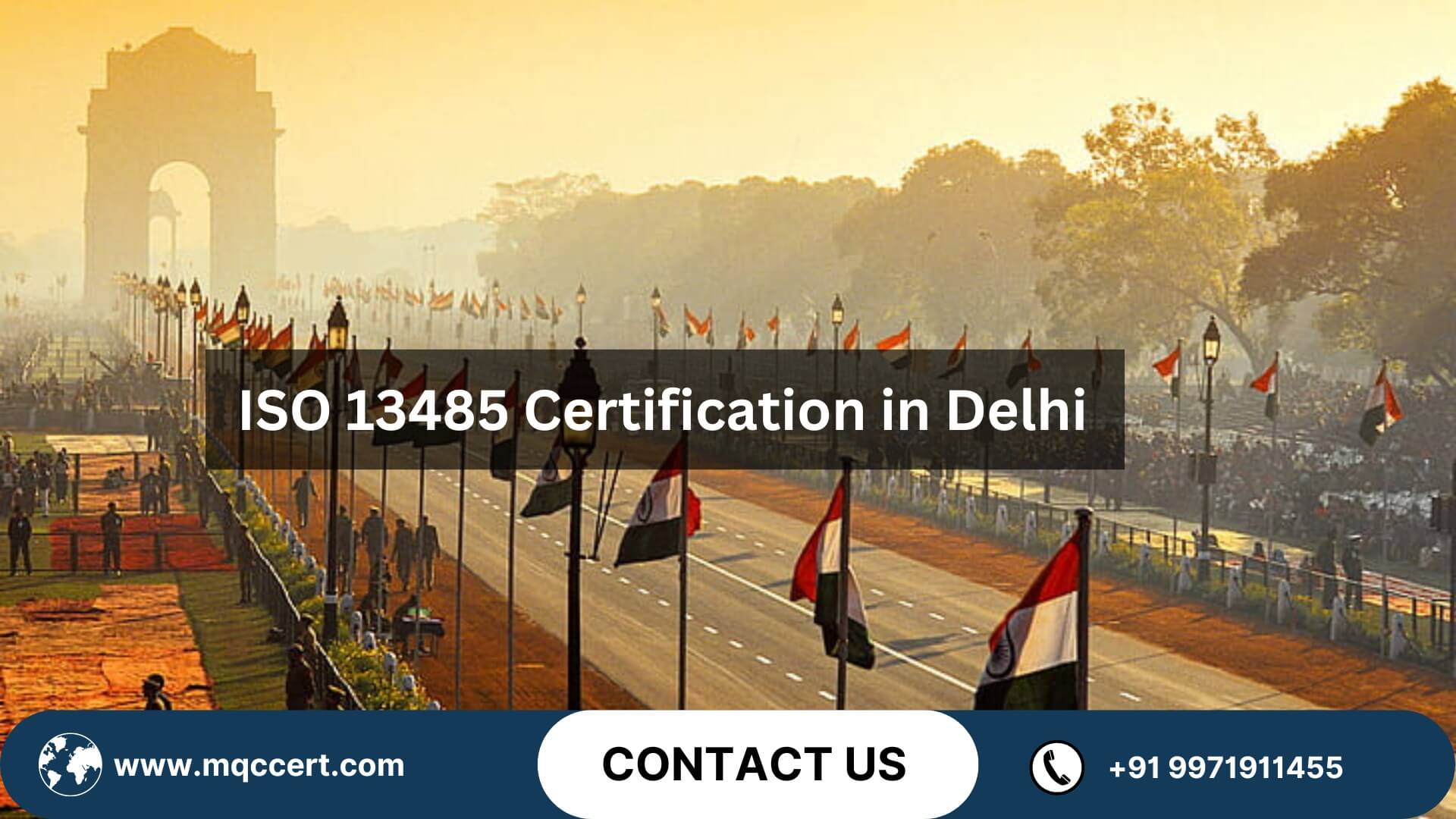
ISO 13485 Certification in Delhi
ISO 13485 Certification in Delhi is the internationally recognized quality management benchmark for medical device manufacturers. Obtaining ISO 13485 certification expedites your path to market and ensures the confidence of stakeholders, regulators, and potential customers. First released in 1996, ISO 13485 has undergone revisions in 2003 and 2016.
In March 2016, ISO 13485:2016, the most recent version, came into force. Ensuring that medical products and services consistently meet customer expectations and pertinent regulatory requirements is the aim of these standards.
Why is ISO 13485 Certification Important in Delhi?
Industry leaders from around the world come together as the International Organization for Standardization, or ISO, a non-governmental organization that shares knowledge and experience to address global issues.
ISO 13485, with a few extra standards, essentially covers ISO 9001. Customers and the life science supply chain have come to trust ISO, and they often won’t purchase medical device products from companies that aren’t ISO 13485 certified.
For medical device manufacturers to receive the CE marking—which indicates conformity with safety requirements for products supplied in the European Economic Area—they must first gain ISO 13485 certification with a notified organization and establish a quality management system.
What is the price of obtaining ISO 13485 certification in Delhi?
The cost of ISO 13485 certification varies significantly depending on the size and complexity of your company and products.
5 Key Elements of ISO 13485
Medical device firms must adhere to ISO 13485’s requirements for design and development, risk management, production, and post-production operations. The following list of five essential ISO 13485 requirements is crucial for any business hoping to become ISO 13485 certified.
1. Quality management system (QMS)
To achieve ISO 13485 certification a business must establish and maintain a quality management system that meets the standards. This section covers the documentation required for the quality management system’s implementation and upkeep as well as its general requirements.
According to ISO, organizations need to:
- Considering the many roles involved, identify the processes required by the quality management system and what is required to apply these processes throughout the organization.
- Identify the sequence of these processes and how they interact.
- Control the relevant procedures required for the quality management system using a risk-based approach.
2. Management responsibility
The special duties and obligations of management with regard to the establishment and upkeep of quality management systems are described in this section.
In other words, management needs to demonstrate that it is dedicated to creating, sustaining, and improving the efficacy of the quality management system. To carry that out:
- Emphasize the significance of adhering to regulatory regulations.
- Verify the resources for the quality management system are available.
- Establish high-value quality policy
- Ensure that quality objectives are established
- Conduct management reviews
3. Resource management
The resources that life sciences firms should commit to in order to put the quality management system into place and keep it operating effectively are outlined in this phase. It lists the essential provisions required to satisfy important legal and client demands.
The following resources are listed in this section:
- Infrastructure
- Work environment
- Contamination control
- The provision of resources
- Human resources
4. Product realization
Many firms neglect the planning stage in their haste to bring goods into development as quickly as feasible. It is required by Section 7.1 that you plan your realization efforts effectively.
More specifically, it states that you should:
- Describe the processes that you must implement and the supporting materials that must be obtained for them.
- Establish the quality requirements for your product(s)
- Describe the infrastructure that the company will need to build and the ideal working environment.
- Specify qualification and training requirements for employees.
- Decide on your procedures for handling, inspection, verification, validation, measurement, monitoring, distribution, storage, and traceability.
Finally, you need to arrange all of the data such that it is understandable and accessible.
5. Measurement, analysis, improvement
As per ISO, “the organization shall plan and implement the monitor, measurement, analysis, and improvement processes” concerning the products and quality management system.
In this pursuit, organizations need to:
- Preserve the efficiency of the system for quality control.
- Verify if the quality management system is in compliance.
- Demonstrate conformity of product
How to get ISO 13485 Certification in Delhi
If you are wondering how to get ISO 13485 Certification in Delhi? MQC Assessment Services is a globally known company specializing in providing ISO certification services, consultation, audit and other related service. A well-known business in the world that specializes in offering ISO certification services is MQC Assessment Services. With Mqc’s assistance, ISO 13485 Certification in Delhi is simple. You can easily contact Mqc by going to www.mqccert.com, where you can chat with an expert, or you can send an email to info@mqccert.com, and one of the experts will get in touch with you as soon as possible to offer the best available solution.
